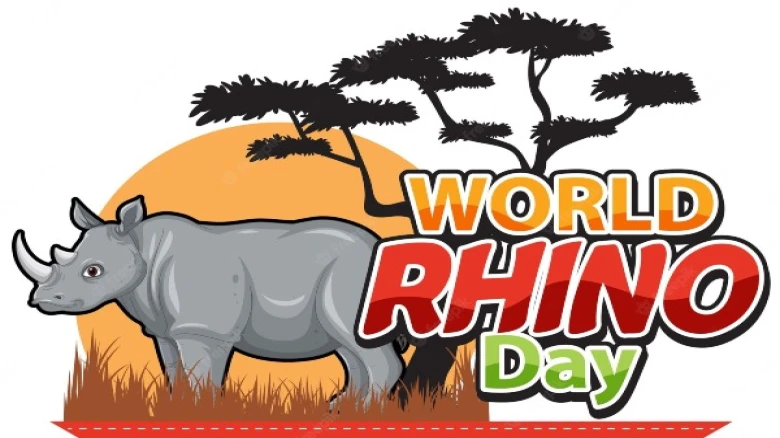World Rhino Day is observed to raise awareness about the various species of rhinoceros found around the world and the risks they face.
Digital Desk: Assam is well known for its rich and diverse range of flora and fauna. Because the Rhinoceros unicornis species or one-horned rhinoceros, located in Assam's National Parks is properly protected, the state has written a success story in the world's rhino conservation landscape.
As the rhino population in the state began to decline, this animal became a major victim of poaching.
Since 2016, the State government has been making concerted attempts to conserve the one-horned rhino, which is deeply identified with Assam's identity and holds a special place in the hearts of the Assamese people.
Assam Chief Minister Himanta Biswa Sarma took to Twitter on World Rhino Day to proclaim that the state government is committed to protecting the majestic animal and its habitat. "The one-horned rhino, Assam's pride, holds a special place in our people's hearts and minds." It is an important tourist attraction and a part of Assam's culture. "On #WorldRhinoDay, I reiterate our government's unwavering commitment to protecting the lovely animal and its ecosystem," added the CM.
"Greetings on World Rhino Day. @assampolice will continue to be the voice of our animal kingdom companions." @assamforest @CMOfficeAssam," GP Singh, Additional DGP (Law & Order), also wished on World Rhino Day.
On World Rhino Day, Union Minister Sarbananda Sonowal also tweeted. "Greetings on #WorldRhinoDay!" he said. The renowned One Horned Rhino, a lovable giant, is India's pride."
The day is critical in raising awareness about rhino conservation. Rhino horns are being hunted for a variety of medicinal purposes. This is one of the reasons for the species' slow extinction.
It also brings together numerous groups to save endangered species and preserve them in zoos and wildlife refuges. There are five rhino species in total: white, black, larger one-horned, Sumatran, and Javan rhinos.
The day was first observed in 2010 by Rhishja Cota and Lisa Jane Campbell. Lisa began seeking partnerships in 2011 to prepare for World Rhino Day. The purpose of this day is to draw attention to the five rhino species that must be protected from any illegal activities carried out by people.
Worldwide, World Rhino Day is observed both offline and online. As a result, it was recognized as a global event and was celebrated everywhere.
In addition to being the third largest animal, the one-horned rhino is a glory of Assam and is one of the rarest and most unusual species in the world.
About 85% of the rhino population worldwide resides in the Kaziranga National Park, however, some are dispersed throughout national parks in India and Nepal.
The greatest one-horned rhino population in India, with 2,895 rhinos, is found in Assam. Kaziranga National Park (KNP) is home to 2,613 of these rhinos, whereas Manas National Park (50), Orang National Park (125), and Pobitora Wildlife Sanctuary (107), each have a smaller number.
This year's World Rhino Day theme is Five Rhino Species Forever.
Poaching rhinoceros is a severe threat to the species and posed a significant challenge to the Assam government. Poaching for rhino horns is still a severe issue, with one-horned rhinoceros being murdered and their horns being cut off and smuggled.
Despite being prohibited and lacking scientific support, rhino horns are mistakenly considered to have medical properties and are nonetheless utilised in some traditional Asian medicines to treat a number of ailments.


Leave A Comment